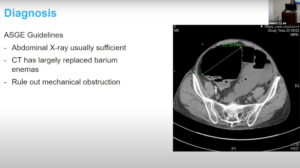NEW YORK (Reuters Health) – In patients with liver cancer related to hepatitis B virus (HBV) infection, giving nucleoside analogues after curative surgery appears to reduce the risk of tumor recurrence by about a third, Taiwanese authors say.
Their study is reported in the Journal of the American Medical Association for November 14, released early online to coincide with a presentation at this week’s meeting of the American Association for the Study of Liver Diseases in Boston.
Based on the findings, said lead author Dr. Chun-Ying Wu in email to Reuters Health, “I strongly recommend starting nucleoside analogues treatment as a standard of care” after resection of HBV-related hepatocellular carcinoma (HCC), to reduce HCC recurrence and to improve patients’ overall survival.”
Dr. Wu, of the National Yang-Ming University in Taipei, and colleagues explain that HBV viral load is a risk factor for HCC recurrence after surgery, and nucleoside analogues suppress HBV replication. “However,” they say, “studies on the effectiveness of nucleoside analogue use in HCC recurrence have been relatively limited and have yielded conflicting results.”
To investigate further, the team analyzed nationwide data on HBV-related HCC recurrence in 4,569 patients who underwent liver resection from 2003, when the National Health Insurance program began reimbursement for nucleoside analogues for HBV patients, to 2010. In the total cohort, 518 patients received nucleoside analogues such as lamivudine, entecavir, and telbivudine.
After adjustment for competing mortality, the six-year cumulative incidence of HCC recurrence was 45.6% in the treated group, significantly lower than the 54.6% seen among the untreated patients (p
Similarly, six-year overall mortality in the two arms was 29.0% versus 42.4% (p
On multivariate analysis, nucleoside analogue treatment was associated with a hazard ratio for HCC recurrence of 0.67 (p
These associations were confirmed in all subgroups of patients, including those with diabetes and those without cirrhosis.
Information on adverse events was not available but the authors note that nucleoside analogues used to treat chronic hepatitis B have good short-term safety profiles. “There is nearly no down side to such therapy for the treated patients,” Dr. Wu added in his email.
In an editorial, Dr. Anna S. F. Lok of the University of Michigan in Ann Arbor writes: “The results of this study support findings from multiple smaller studies but are by no means definitive enough to answer the question of whether antiviral therapy after curative resection of hepatitis B-related HCC will prevent disease recurrence.”




